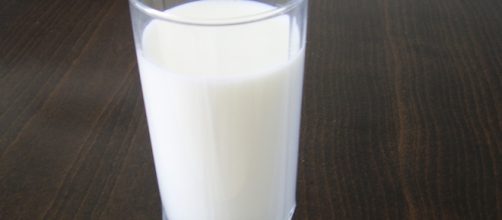Milk has been an essential component of human nutrition for thousands of years. Milk contains vital nutrients needed for a healthy, well-balanced diet. However, there are many misconceptions about milk, its Health Benefits and/or dangers, dairy cows, hormones, and antibiotics. Bovine Milk has been villainized in the media recently, but it is important to understand the facts and the research before completely removing bovine milk and its associated Dairy Products from your diet.
Nutrition information
Dairy products are a rich source of calcium. Calcium helps build strong bones and teeth and its intake is linked to lower risk for osteoporosis and improved bone mass.
This is especially important when bone mass is increasing, such as in adolescents. In addition, intake of dairy in adults in associated with reduced risk of type 2 diabetes and heart disease. Many dairy products, including milk, are high in potassium, which can help maintain a healthy blood pressure. Milk is often fortified with vitamin D, which works with calcium to build strong bones. It is important to choose milk products low or free of saturated fat because increased intake of saturated fat can lead to plaque buildup in the arteries. So when choosing milk products, avoid the ones made with whole milk and choose a lower fat option.
Antibiotics
Just like humans get sick, dairy cows can get sick and need to take medicine.
In these cases, the cow is marked as being on antibiotics and is milked separately from the other dairy cows. The milk is then disposed of immediately. It is illegal for there to be any residues of antibiotics in milk that is to be used for human consumption. Even after a cow is taken off antibiotics, their milk is still disposed of for a set period of time and tested to assure there are no drug residues in the milk. Samples of milk are collected and tested numerous times when the milk is being picked up and delivered to the processing plant. If a test result comes back positive for antibiotics, the entire truckload is dumped and the farm responsible for the residues undergoes fines, tags, and regulations.
Milk is tightly regulated to assure there are no antibiotics or residues in the cartons you get at the grocery store.
Hormones
Bovine hormones like rbST can sound scary and dangerous if you don’t know what they do. All technology, including rbST has to go through rigorous research and regulatory review by the FDA (Food and Drug Administration) before it is allowed to be used in food. A lot of research has gone into determining if there is a connection between drinking milk and risk of cancer since milk naturally has many hormones in it, such as estrogen. The amount of estrogen in milk is very small and only 2-5% of the estrogen in milk survives metabolism. The amount retained is less than half a percent of the established upper acceptable intake and is significantly smaller than the amount produced by men and women every day.
Studies have shown that intake of milk can decrease risk of bladder, breast, and colon cancer. A very slight positive association between milk consumption and prostate cancer was observed. According to an article in the Clinical Journal of Oncology Nursing, there is currently not enough information or evidence to determine bovine milk’s connection to cancer. Research will continue to look into hormones from food and their effect on the human body and cancer risk.


